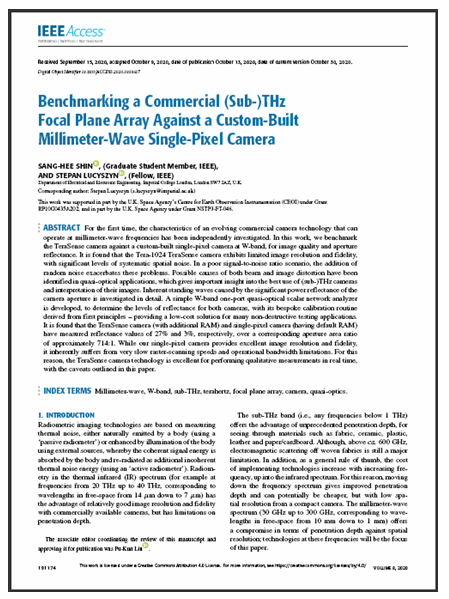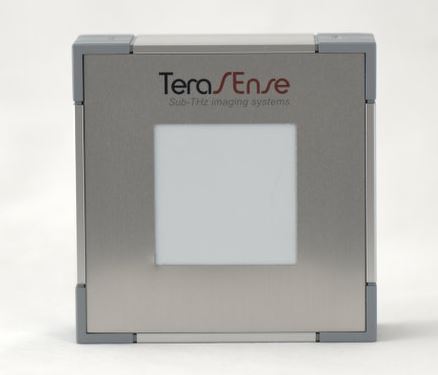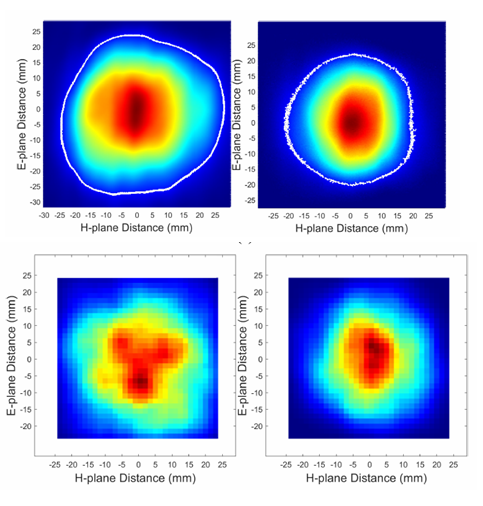Terasense THz imaging cameras successfully tested by Imperial College London, supported by the U.K. Space Agency’s Center (CEOI)
 The number of our customers in various fields of science and industry around the world is steadily growing. No wonder that some of our most active and inquisitive scientific customers may want to subject certain of our THz products to substantial trial intended to verify their performance and operating parameters. In fact, we are used to it and welcome such efforts. Researchers and scholars take nothing for granted, which, in its turn helps the mankind evolve and survive. Of course we are extremely grateful to our customers who invest their time and resources and take the trouble of sharing the results of such experiments with the research community by publishing them in the scientific papers.
The number of our customers in various fields of science and industry around the world is steadily growing. No wonder that some of our most active and inquisitive scientific customers may want to subject certain of our THz products to substantial trial intended to verify their performance and operating parameters. In fact, we are used to it and welcome such efforts. Researchers and scholars take nothing for granted, which, in its turn helps the mankind evolve and survive. Of course we are extremely grateful to our customers who invest their time and resources and take the trouble of sharing the results of such experiments with the research community by publishing them in the scientific papers.
This time we are especially proud to hit the pages of IEEE Access edition under the article title ‘Benchmarking a Commercial (Sub-)THz Focal Plane Array Against a Custom-Built Millimeter-Wave Single-Pixel Camera’.
The authors of the paper Sang-Hee Shin, Graduate Student Member, IEEE, and Stepan Lucyszyn , Fellow, IEEE, represent the Department of Electrical and Electronic Engineering, Imperial College London that purchased one of our THz imaging camera (Tera-1024 ) a couple of years ago.Obviously, they’ve put it to a good use.
Basically, the article confirms that Terasense THz imaging camera (with a pixel pitch 1.5mm, spectral range 50GHz – 0.7THz) proved to be an excellent tool for THz beam measurement and profiling. Moreover, our counterparts at Imperial College London used their own custom-built single-pixel camera at W-band with the purpose of benchmarking the TeraSense camera against it for image quality and aperture reflectance. Needless to say that authors elaborately described the most ideal conditions and the most optimal setup for beam profile measurement, which many other users may find very useful. So, the article is worth while reading.
Well, we are not surprised that our THz cameras successfully stood up to the test and demonstrated outstanding results. The conclusion made by the researchers explicitly state that while their own “custom-made non-pre-amplified direct-detection single-pixel camera ..suffers from very slow raster-scanning speeds and operational bandwidth limitations” … the TeraSense technology is superior in these respects and THz imaging camera (Tera-1024 proved ‘ excellent for performing qualitative measurements in real time” with the caveats outlined in this paper.
It gives us special pleasure, confidence and inspiration to know that their efforts were supported in part by the U.K. Space Agency's Centre for Earth Observation Instrumentation (CEOI) under respective Grant and therefore we are at liberty to state that Terasense can now enjoy a sort of endorsement from both of these esteemed organizations.

